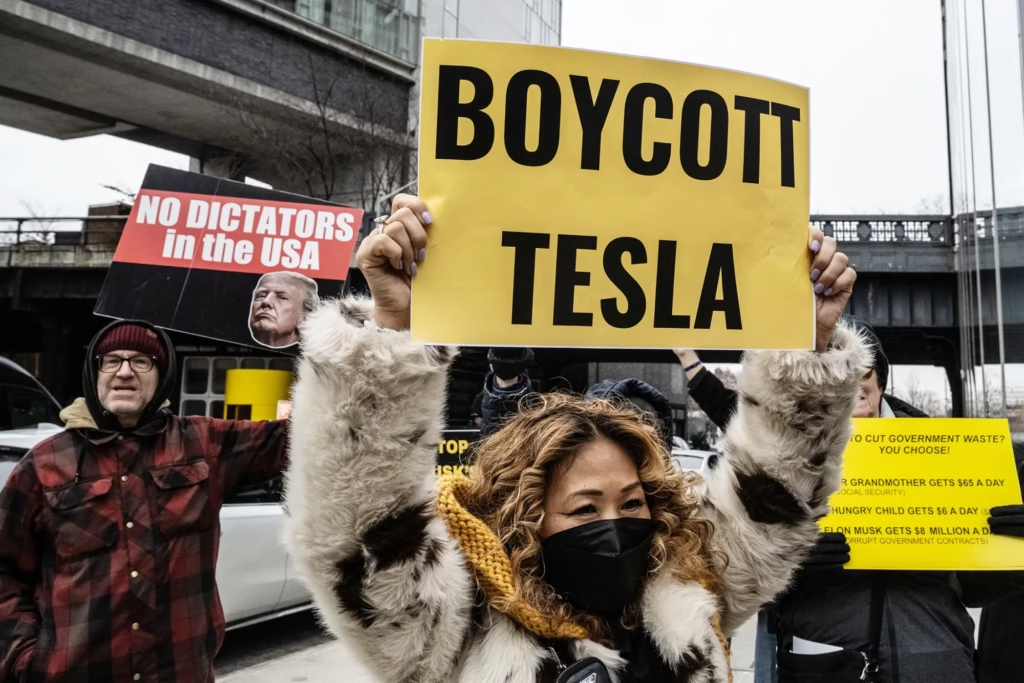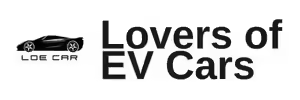
In recent months, a growing movement has emerged across the United States, calling for a boycott of Tesla and its CEO, Elon Musk. This campaign, known as “Tesla Takedown,” has gained momentum due to Musk’s political affiliations and actions, leading to widespread protests and a noticeable impact on Tesla’s market performance.

Origins of the Boycott
The “Tesla Takedown” movement began in early 2025 in response to Musk’s involvement with President Donald Trump’s administration, particularly his leadership of the Department of Government Efficiency (DOGE). This department aims to implement significant federal spending cuts and deregulation, raising concerns among various groups about potential impacts on public services and employment.
Nationwide Protests
Demonstrations have erupted at Tesla showrooms nationwide. In New York City, nine individuals were arrested during a protest outside a Tesla dealership, reflecting the intensity of public sentiment. Similar protests occurred in cities like San Francisco, Berkeley, Minneapolis, and Kansas City, with participants expressing concerns over Musk’s political influence and advocating for economic pressure on Tesla.
Impact on Tesla’s Sales and Market Share
The boycott has had tangible effects on Tesla’s sales and market share. In California, a key market for the company, Tesla registrations decreased by nearly 12% in January 2025 compared to the same period in 2024. This decline is part of a broader trend, with Tesla’s market share eroding in Europe as competitors gain ground and consumer boycotts grow.

International Repercussions
The backlash against Musk and Tesla is not confined to the United States. In Poland, a government minister called for a boycott of Tesla vehicles, further highlighting the global nature of the dissent.
Additionally, Tesla showrooms in Europe have been targeted by protesters, indicating widespread discontent with Musk’s political stance and actions.
Corporate Responses
The boycott has extended beyond individual consumers to include corporations. Several companies, such as Lego, Nestlé, and Colgate-Palmolive, have pulled advertising from platforms associated with Musk, prompting legal action from his social media company, X. This development underscores the broader corporate distancing from Musk’s ventures amid the growing controversy.
Conclusion
The “Tesla Takedown” movement reflects a significant shift in public perception of Elon Musk and his enterprises. As protests continue and calls for boycotts grow louder, the long-term impact on Tesla’s brand and financial performance remains uncertain. However, the current trends suggest that consumer and corporate pushback against Musk’s political involvement is influencing the company’s market position both domestically and internationally.

Leave a Reply